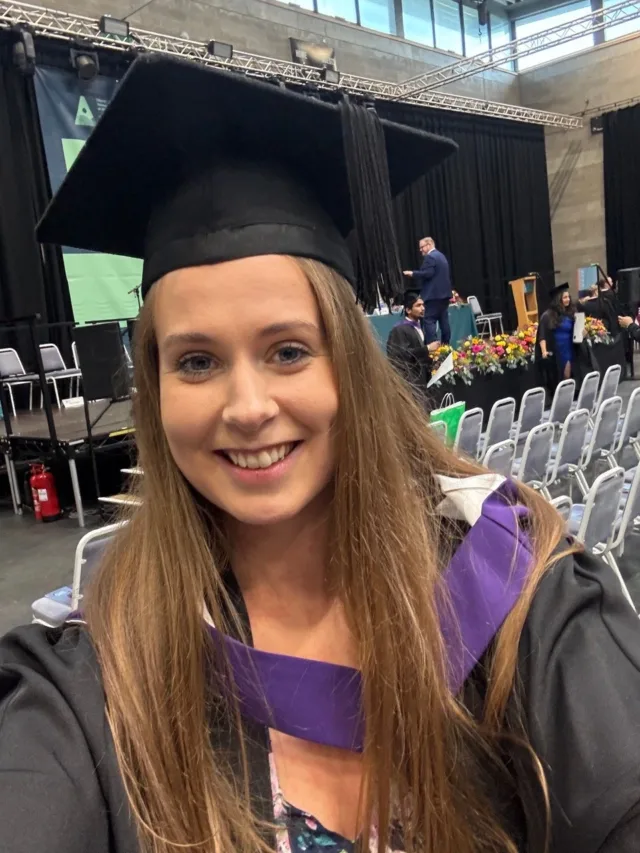Courses
Quality
Master of Science
Course Details
| Course Code | SG_EQLTY_M09 |
|---|---|
| Level | 9 |
| Duration | 2 years |
| Credits | 60 |
| Method of Delivery | Online |
| Campus Locations | Sligo |
| Mode of Delivery | Part Time |

Course Overview
The MSc in Quality is two-year part-time programme designed for graduates who are currently in quality engineering and/or management positions and who wish to expand their knowledge towards the strategic aspects of the quality management and quality science.
About this Programme
This programme will provide the students with the skills and tools necessary to meet the demands of the next generation employability allowing them to advocate and implement strategic and change management programmes and co-ordinate and manage these in a global environment. The emphasis is on developing expertise as quality management professionals, providing the tools, methods, knowledge and skills that are necessary to achieve adaptability, flexibility, creativity and innovation. The necessary skills and competencies will be developed to allow graduates to move beyond the operational level and to facilitate the resolution of strategic issues such as the corporate quality strategy and its implementation in an international context.
Aims and Objectives
The objectives of the programme are to ensure that graduates will:
Possess a state-of-the-art knowledge of current practices and standards relating to quality.
Enhance their ability to apply a significant range of professional skills, practices and techniques in management.
Achieve an understanding of the nature of global competition, comparative performance and performance measurement.
Develop skills to become leaders and innovators in the application of Quality principles and techniques.
Develop as quality management professionals for senior roles in the service and manufacturing industry.
Important: Modules are delivered over the two years of the programme. A selection of the 11 modules will be taught each year, with all completed over the 2 years.
Most students complete the programme within the 2-year timeframe. However, if you need to defer part of the course, you will not be able to take the module(s) again until it is running in the designated year.
Testimonial

I feel like this Master’s program chose me. I have a BSc in Biology, but I hadn’t pursued a Master’s because I didn’t want to commit to just any degree—I wanted something practical that would genuinely add value to my career. I’ve been working in the pharmaceutical and medical device industries for several years now and am currently in a Quality role. So, when I came across a Master’s in Quality, I knew straight away that this was the Master I had been waiting for. The program deepened my understanding of how quality systems operate, how different elements connect, and how future trends are shaping the field. This broader perspective has helped me approach my work more strategically and from multiple viewpoints. My degree contributed to my career progression and it provided me a formal recognition within my organisation
Graduate – Guðný Ósk Sigurðardóttir , Quality & Regulatory Specialist
Course Details
Year 1
| Semester | Module Details | Credits | Mandatory / Elective |
|---|---|---|---|
| 2 |
Research MethodsThe learner will study different research methods, learn how to analyse research reports and data, analyse qualitative and quantitative research data, disseminate research in terms of reports and journal publications, and communicate effectively their research outcomes. As this is an online course, the majority of students are working in industry and conducting their Research projects in the workplace. Student presentations will be used to share best practices in the class. Best practices will be generic rather than any company specific information. Learning Outcomes 1. Select and critically apply an appropriate research strategy. |
05 | Mandatory |
| 1 |
System Simulation Modelling and AnalysisProvides a comprehensive and practical treatment of all the important aspects of a simulation study, including modelling, simulation software, model verification and validation, input modelling, random number generators, generating random variates, statistical design and the analysis of a simulation study. Learning Outcomes 1. Describe the fundamentals of simulation and the techniques for developing simulation models. |
05 | Mandatory |
| 2 |
Applied Project ManagementIn this module the student will acquire a comprehensive knowledge of project planning and implementation and the issues and pitfalls which commonly occur on projects across a range of organisation structures and industries. Learning Outcomes 1. Demonstrate an understanding of Project Management in distributed and international environments. |
05 | Mandatory |
| 1 |
Transformational ChangeThe student will learn about the concepts involved in the management and facilitation of oranisational change from a quality/project management perspective and acquire the knowledge to be capable of leading/facilitating a change programme for quality and productivity improvement in an organisation Learning Outcomes 1. Critique the concepts associated with transformational change. 4. Defend the role of facilitator/agent of change in the overall context of orgnaisational improvement. |
05 | Mandatory |
Year 2
| Semester | Module Details | Credits | Mandatory / Elective |
|---|---|---|---|
| Year |
Research ThesisThe learner will summarise, present, explain and critically discuss current issues, knowledge and theory relating to an area of quality using suitable referencing skills. The learner will demonstrate the ability to plan, execute and monitor an individual research investigation with appropriate attention to the theoretical and practical aspects of the topic. They will analyse, critically evaluate, present and discuss research outcomes in a logical and systematic manner, setting them in the context of previous research. They will produce a written report of their research and its conclusions that is appropriate to a Master's degree level. Learning Outcomes 1. Survey, summarise, present, explain and critically discuss current issues, knowledge and theory relating to an area of Quality Management & Quality Technology using suitable referencing skills. |
20 | Mandatory |
| 1 |
INTEGRATED QUALITYThis module facilitates a deep appreciation of quality from its metaphysical level to its day to day practise. It draws from the conventional sources of standards, gurus and models as well as the broader emerging field of appreciative systems. Learning Outcomes 1. Explain the fundamental principles underpinning quality. |
05 | Mandatory |
| 1 |
Advanced Experimental DesignThe student will be learn how to design, conduct and analyse standard and complex experiments, and interpret the data from these experiments. Learning Outcomes 1. Conduct two and three level fractional factorial experiments and analyse the resulting data. |
05 | Mandatory |
| 2 |
Strategic ManagementIn this module the student will acquire a comprehensive knowledge of strategy making, strategy transformation and implementation, learn how to recognise corporate structures and how to influence decision making in the hierarchy. Learning Outcomes 1. think strategically about a company, its present business position, its long-term direction, its resources and competitive capabilities, the calibre of its strategy, and its opportunities for gaining sustainable competitive advantage. |
05 | Mandatory |
| 2 |
Value Stream OptimisationThis subject aims to provide the students with the skills and knowledge required to to develop the value stream as a source of competitive advantage. Learning Outcomes 1. Recognise the value stream as a source of competitive advantage. |
05 | Mandatory |
Recommended Study Hours per week
Examination and Assessment
Note: Where assessment on the programme involves examinations, these are held on campus or at another exam venue in the Republic of Ireland. There are typically two exam periods: January and May. Times scheduled for examinations (face to face / online exams ) are in GMT.
Students who are resident overseas and those with extenuating circumstances may apply to take examinations online with an external online invigilation service (online proctored exams), where this is available. Places are limited for this service.
On-Campus Attendance Requirement
Note: Check programme Examination and Assessment requirements, as they may involve examinations to be taken on campus.
Download a prospectus
Entry Requirements
Participants must have one of the following academic qualifications:
A 2nd class BSc Hons degree in Quality Management or Higher Diploma in Quality (Level 8.) or equivalent.
2nd class Hons (Level 8.) graduates who are currently in quality engineering/management positions within their respective organisations. These candidates will be selected following interview.
Graduates who have not obtained this minimum may incorporate other equivalent qualifications and relevant work experience and apply for assessment via the Recognition of Prior Learning (RPL) process. RPL is a process that may allow you to gain admission to a programme or to receive exemptions/ credit for some parts of the programme based on demonstrated learning that you may have achieved through another programme of study or through your work or career. Further information is available at www.atu.ie/recognition-of-prior-learning which our dedicated RPL portal.
Careers
Typically, graduates will be employed as quality managers or senior quality engineers.
Further Information
Who Should Apply?
This programme designed for graduates who are currently in quality engineering or management positions and who wish to expand their knowledge, skills and expertise.
Application Closing Date
Start Date
Contact Information
Online Student Advisor
Kevin Colonna
T: +353 (0) 71 930 5219
E: Kevin.Colonna@atu.ie
Mechanical & Manufacturing Engineering


